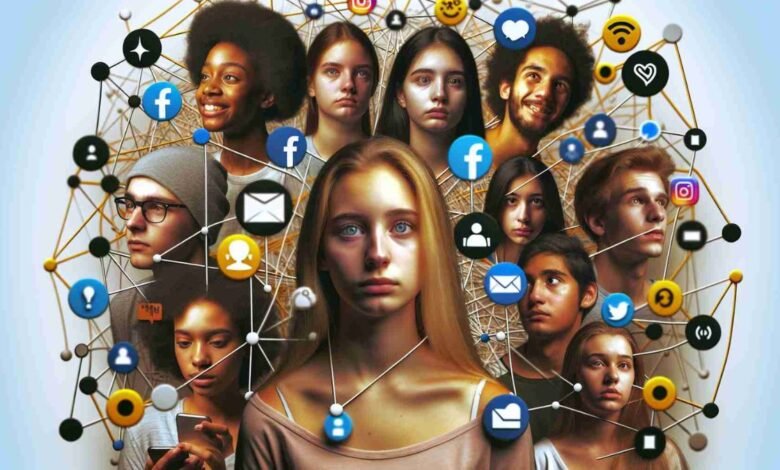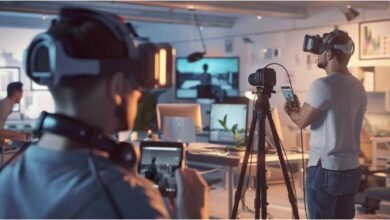The Impact of Social Media on Mental Health

In recent years, social media has become an integral part of our daily lives. With platforms like Facebook, Instagram, Twitter, and TikTok dominating the digital landscape, the way we communicate, share, and connect has transformed dramatically. While social media offers a plethora of benefits—such as the ability to connect with friends and family across the globe and access a wealth of information—it also presents significant challenges, particularly concerning mental health. This article delves into the multifaceted relationship between social media and mental health, examining both the positive and negative impacts and providing insights into how users can navigate this complex terrain.
Understanding the Positive Effects of Social Media
One cannot overlook the positive effects of social media on mental health. For many, these platforms serve as vital tools for connection and support. Social media can create a sense of belonging, especially for individuals who may feel isolated in their offline lives. Platforms like Facebook and Instagram allow users to maintain relationships and share experiences, fostering a sense of community. Online support groups provide a safe space for individuals dealing with similar mental health challenges to share their stories, seek advice, and offer encouragement to one another. This connectivity can be particularly beneficial for marginalized groups, where traditional support systems may be lacking.
Moreover, social media can also serve as an educational resource. Many organizations and influencers use these platforms to raise awareness about mental health issues, reduce stigma, and promote resources for help. Campaigns such as #MentalHealthAwareness and #EndTheStigma have gained traction, encouraging discussions that were once considered taboo. By promoting mental health literacy, social media can empower individuals to seek help, understand their experiences, and support others in their journeys.
Additionally, for creatives and individuals seeking self-expression, social media provides an outlet to share art, writing, and personal stories. This form of self-expression can enhance self-esteem and offer validation, especially when receiving positive feedback from peers. Engaging in creative activities online can serve as a therapeutic practice, helping users process emotions and experiences in a constructive manner.
The Dark Side of Social Media
Despite these benefits, the darker implications of social media on mental health cannot be ignored. A growing body of research suggests a correlation between heavy social media use and increased rates of anxiety, depression, and loneliness. The curated nature of social media—where users showcase the highlights of their lives—can lead to unrealistic comparisons and feelings of inadequacy. When individuals scroll through seemingly perfect images and success stories, they may feel as though they fall short, exacerbating feelings of low self-worth and dissatisfaction with their own lives.
Cyberbullying is another significant concern that has emerged with the rise of social media. The anonymity and distance provided by online interactions can embolden individuals to engage in harmful behaviors that they might avoid in face-to-face situations. Victims of cyberbullying often experience severe emotional distress, leading to anxiety, depression, and in extreme cases, suicidal thoughts. The pervasive nature of online harassment makes it difficult for individuals to escape, as social media can infiltrate every aspect of their lives.
Moreover, social media can foster addiction-like behaviors, contributing to a cycle of compulsive use that can interfere with daily functioning. Users may find themselves constantly checking notifications, scrolling through feeds, or feeling compelled to post updates, leading to reduced productivity, disrupted sleep patterns, and diminished real-life interactions. This compulsive behavior can create a vicious cycle, where the individual seeks validation through likes and comments, only to feel emptier when offline.
The Role of FOMO and Social Comparison
Another psychological phenomenon closely linked to social media use is the fear of missing out (FOMO). This anxiety stems from the perception that others are engaging in rewarding experiences while one is left out. FOMO can lead to compulsive social media checking, as individuals seek reassurance and connection. This constant need to stay updated can create a cycle of anxiety and restlessness, where users feel pressured to engage with social media even when it negatively impacts their well-being.
Social comparison is closely tied to FOMO. Individuals often measure their worth based on how they perceive others are doing, which can lead to negative self-assessment. This constant comparison can lead to a decline in self-esteem and overall life satisfaction. Studies have shown that individuals who frequently compare themselves to others on social media are more likely to experience symptoms of depression and anxiety.
The Impact on Adolescents and Young Adults
Adolescents and young adults are particularly vulnerable to the negative impacts of social media on mental health. During these formative years, individuals are still developing their identities and self-esteem, making them more susceptible to external validation and peer pressure. Social media can amplify these pressures, creating environments where popularity is often measured by likes and followers.
Research indicates that excessive social media use among adolescents is linked to increased rates of depression and anxiety. For instance, studies have shown that teenagers who spend more than three hours a day on social media are at a higher risk of mental health issues. The constant exposure to idealized images and lifestyles can lead to body image issues, low self-esteem, and feelings of inadequacy. Furthermore, the high levels of social comparison can contribute to the onset of eating disorders, as young individuals may strive to attain unrealistic beauty standards portrayed online.
Parents and guardians play a crucial role in helping young people navigate social media. Open conversations about online behavior, encouraging healthy usage patterns, and fostering critical thinking about the content consumed can empower adolescents to use social media more mindfully. By understanding the impact of social media, caregivers can provide support and guidance, helping young people build resilience in the face of digital challenges.
Strategies for Healthy Social Media Use
Recognizing the complex relationship between social media and mental health, it is essential to adopt strategies that promote healthier usage. Setting boundaries around social media use is a crucial first step. Individuals can designate specific times for checking social media, thereby reducing the impulsive need to engage throughout the day. Additionally, curating one’s feed to include positive, uplifting content can help combat negative feelings associated with online interactions. Unfollowing accounts that promote unrealistic standards or negative messages can create a more supportive online environment.
Practicing digital detoxes—taking breaks from social media—can also be beneficial. These breaks allow individuals to reconnect with themselves and their offline lives, fostering a healthier balance between online and real-world interactions. During these periods, individuals can engage in activities that promote well-being, such as exercise, reading, or spending time with loved ones.
Lastly, it is vital to encourage open discussions about mental health. Creating an environment where individuals feel safe sharing their experiences and challenges related to social media can reduce stigma and foster support. Whether in personal relationships or within online communities, open dialogues can help individuals process their feelings and experiences, leading to healthier relationships with social media.
Conclusion
The impact of social media on mental health is a multifaceted issue that requires a nuanced understanding. While social media can provide connection, support, and opportunities for self-expression, it also poses risks that can significantly affect mental well-being. By recognizing these challenges and implementing strategies for healthier use, individuals can navigate the digital landscape more effectively. Ultimately, fostering a balanced relationship with social media is essential for maintaining mental health and well-being in an increasingly connected world. As we move forward, it is crucial to continue exploring this evolving relationship, ensuring that social media serves as a tool for positive engagement rather than a source of distress.



